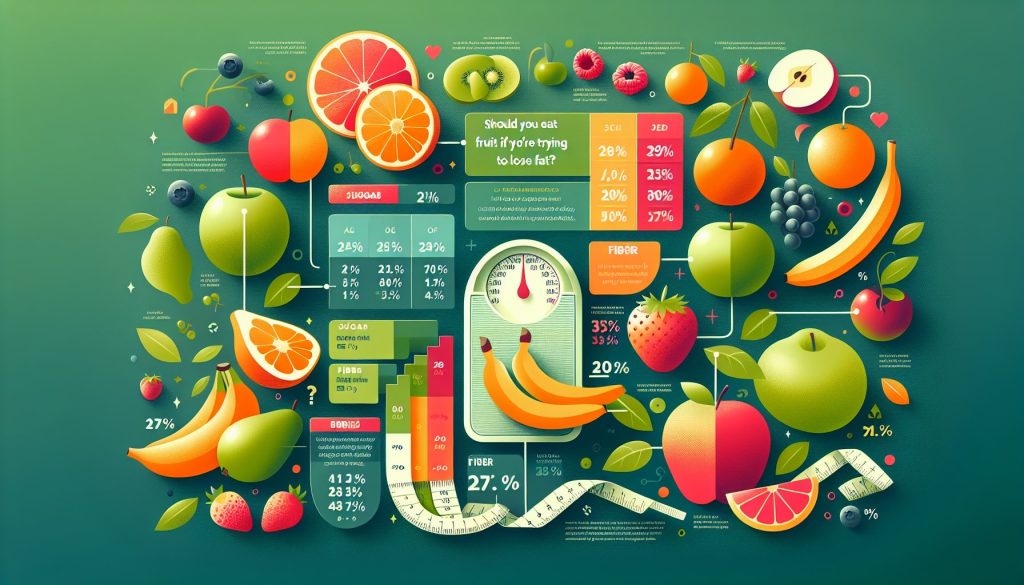When you’re on a journey to shed some extra fat, every food choice you make plays a crucial role in your success. Among the mass of dietary advice floating around, there’s one question that often pops up: Should you eat fruit if you’re trying to lose fat? Let’s dive deep into this topic, debunk some myths, and set you on the right path for your weight loss journey.
Understanding Fruit in the Context of Fat Loss
1. Natural Sugars and Caloric Content:
Fruits contain natural sugars, primarily fructose, which is often surrounded by a cloud of negativity in diet culture. While it’s true that consuming excess sugar can lead to weight gain, the sugars in fruit come packaged with fiber, vitamins, minerals, and water, all of which help in regulating how your body uses sugar. The fiber in fruits especially helps slow digestion, which prevents rapid spikes in your blood sugar and helps keep you satiated.
2. Nutrient Density and Health Benefits:
Fruits are nutrient powerhouses. They provide essential vitamins like vitamin C, vitamin A, and various antioxidants that not only support overall health but also aid in proper bodily functions that can enhance your fat loss efforts. For example, vitamin C is crucial for the synthesis of carnitine, a compound that helps your body burn fat for energy. The antioxidants found in fruits like blueberries and apples can also reduce inflammation, potentially leading to better physical performance and recovery during your fat loss workouts.
3. Portion Control and Frequency:
The key to including fruit in a fat loss diet is portion control. Overeating anything, including fruits, can lead to excess calorie consumption. Moderation is your friend. Opt for a serving or two of fruit per day, and choose whole fruits over fruit juices. Whole fruits retain all the fiber and have a lower glycemic index, which helps in controlling hunger and reducing calorie intake.
4. Fruits as Natural Sweetener Alternatives:
Choosing fruits instead of processed snacks or desserts can help satisfy your sweet tooth while still aiding your fat loss goals. When you replace high-calorie, nutrient-poor snacks with something like an apple or a bowl of berries, you reduce the overall number of calories you consume while boosting your nutrition intake.
5. Role in a Balanced Diet:
Remember, no single food is a magic bullet for fat loss. It’s the overall diet and lifestyle that matters. Integrating fruits into a balanced diet that includes a variety of food groups—lean proteins, whole grains, healthy fats, and vegetables—will help you create a calorie deficit required for fat loss while still supporting your body’s nutritional needs.
What Does it All Mean?
So, should you eat fruit if you’re trying to lose fat? Absolutely. Fruits are not only packed with essential nutrients but also provide fiber that helps in appetite control and offers a healthy option to satisfy sweet cravings. However, like with all aspects of a diet, it’s important to practice portion control.
Incorporate fruits into your diet in a way that suits your total daily calorie needs. Remember, the journey to fat loss is balanced eating, consistent exercise, and a healthy lifestyle. With fruits in your arsenal, you’re better equipped to face the battle against fat!

